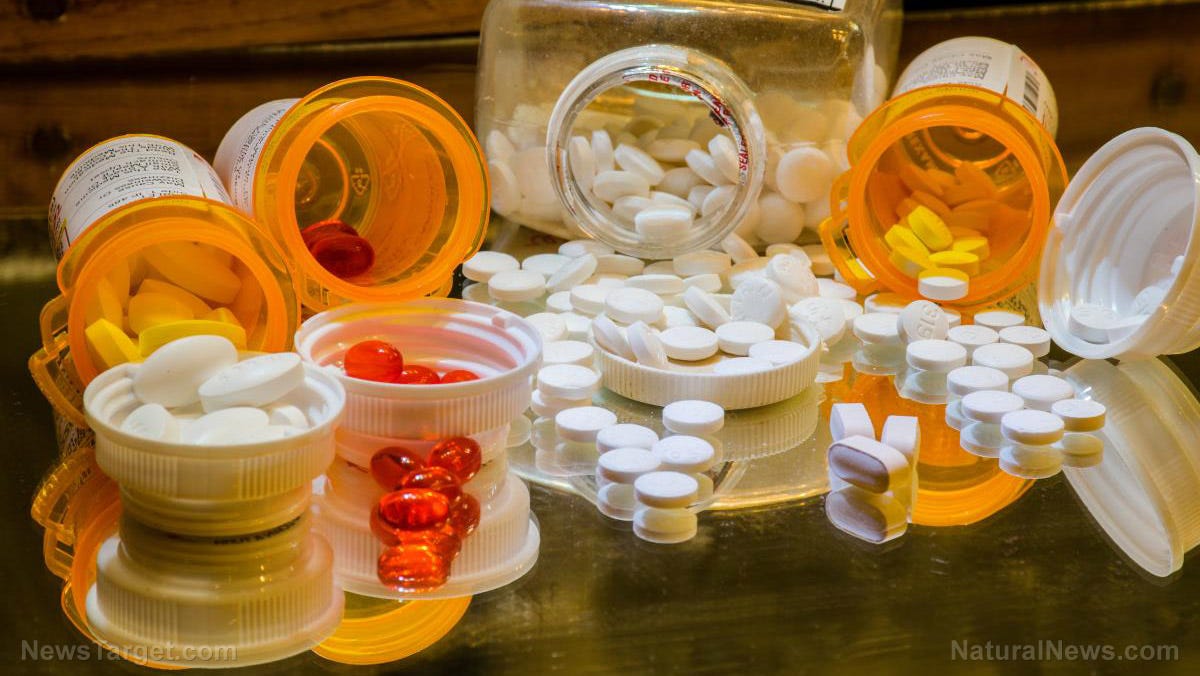‘First Do No Pharm’: New Documentary Exposes Big Pharma Corruption
“First Do No Pharm” takes a deep dive into how pharmaceutical corporations unethically influence medical journals and regulatory agencies in ways that harm patients — while generating profits for them
October 7, 2024
“First Do No Pharm,” a documentary that premiered Sept. 23 in London’s Odeon theater, takes a deep dive into how pharmaceutical corporations unethically influence medical journals and regulatory agencies in ways that harm patients — while generating profits for themselves.
Dr. Aseem Malhotra, the U.K.-based cardiologist behind the film, told The Defender, “It’s a real eye-opener for people in the mainstream.”
The documentary included commentary from international doctors and public figures including Vandana Shiva, Ph.D., Dr. Satish Gupta, Robert F. Kennedy Jr., Kim Witczak, Jay Naidoo, Calley Means and others.
Malhotra said the film has received great reviews so far because it shows viewers the root of the problem but also offers solutions. The two-hour film is available for download for roughly $10.
‘Regulators can’t be taking money from Pharma’
Malhotra is a world-renowned expert in the prevention, diagnosis and management of heart disease.
In the film, he explains how he grew critical of the practice of widely prescribing statins — drugs that lower a person’s cholesterol — when he noticed his patients reported side effects at a higher rate than what the medical literature reported.
His observations suggested roughly 1 in 5 patients who took statins had muscle pain and fatigue, while the published literature said the risk was closer to 1 in every 100.
When Malhotra and other doctors wrote articles about the issue in The BMJ, the pharmaceutical industry called for the articles’ retraction and encouraged news outlets to depict doctors critical of statins as propaganda spreaders.
Meanwhile, the pharmaceutical companies selling statins — including Pfizer, the maker of Lipitor — refused to release the raw data that they claimed showed only 1% of patients experienced side effects.
Lipitor is considered one of the most successful selling drugs of all time, according to Drugs.com.
At the end of 2022, it had an aggregated lifetime sales of $172 billion U.S. dollars.
According to Malhotra, “medical knowledge is under commercial control — but most doctors don’t know that,” which is why the problem has persisted for so long.
“Most doctors don’t even realize that the research that they use to make [decisions] is often, if not mostly, unreliable and potentially harmful — purely for the purpose of making money for these industries,” he said.
The solution, he said, is to correct the commercial distortion of scientific evidence by eliminating conflicts of interest.
“Regulators can’t be taking money from Pharma.”
Medical journals are “massively conflicted if they’re taking millions of dollars for reprints of articles from drug industry-sponsored trials — which are basically non-transparent data.”
So that needs to stop, too. “Those are the key low-hanging fruit, which I don’t think anybody is going to be able to disagree with.”
The film also addresses lifestyle changes — which some viewers may “find surprising,” Malhotra said — that are most effective in curbing heart disease.
Drugs need to be tested by independent scientists
“First Do No Pharm” also reveals how Merck in the late 1990s attempted to sell Vioxx — a painkiller drug it claimed caused fewer gastrointestinal problems than over-the-counter painkillers — even when its internal scientists knew the drug could cause deadly heart attacks and strokes.
The U.S. Food and Drug Administration (FDA) in 1999 approved Vioxx but later issued a public health advisory about the drug. In 2004, Merck withdrew it from the market.
Malhotra discussed his film — and how the pharmaceutical industry has captured regulatory agencies — with medical commentator John Campbell, Ph.D., during Campbell’s recent YouTube show.
Given the drug industry’s track record of deceiving the public to maximize industry profits, Malhotra told Campbell that drug companies should be allowed to develop drugs — but they shouldn’t be the ones testing them.
The film highlights how millions of people were killed when the pharmaceutical industry hid data on the harmful effects of their products. He said drugs should be “independently evaluated by scientists who have the rigor to do these sorts of analyses … who are not connected to industry.”
‘They do not want anyone to see this film’
Big-name celebrity figures who attended the premier event — including Australian actress and singer Holly Candy, TV presenter Jenny Powell and British TV presenter and tennis player Annabel Croft — haven’t been able to share the film on social media.
“If they’re sharing posts of just being at the movie event at the Odeon, it’s being taken down by Facebook saying it breaches community guidelines,” Malhotra said. “It’s absolutely shocking.”
Malhotra told The Defender that Meta — the company that owns Facebook and Instagram — has an algorithm designed to remove or shadow-ban anything that goes against the commercial interests of its sponsors or partners.
He encouraged people to share the film as much as possible on other platforms, such as X, and not be discouraged. “It’s a backhanded compliment … they do not want anyone to see this film.”
Watch Campbell and Malhotra discuss ‘First Do No Pharm’:
Share or comment on this article.
Your support is crucial in exposing fake news and in helping us defeat mass censorship.




